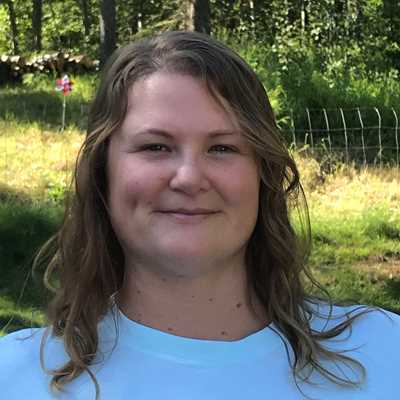Today Kathleen O’Reilly, Ph.D., is a professor in the Geography Department at Texas A&M University where she focuses on how people’s location and gender affect their relationship with water and sanitation. But her road to these unique focuses was a long and unusual journey.
O’Reilly’s journey began in Oregon, where she grew up with a love of maps, travel and singing. In college, her first choice of study was engineering, but her singing talent could not be ignored after receiving a major prize in a singing competition. She went on to earn a Bachelor of Music in voice from Westminster Choir College in Princeton, New Jersey.
After O’Reilly completed her undergraduate work, she became an editor for a distance learning program in science at the University of Alabama. Her work returned her to her love of science and engineering and led her back to school. Her love of maps and travel led her to the University of Alabama’s geography graduate program.
In graduate school, O’Reilly took a world regional geography class that changed her understanding of human-environment relationships and helped her to realize her passion for studying people and how they interact with the world around them. She also met a mentor who helped her along in her career trajectory.
“He really fed my interests,” she explained. “If I expressed an interest in something, he always had some kind of follow-up, an article, a paper that he wrote or a news story. And I think that, cumulatively, I realized that science was the way to approach the questions that I had.”
From geography to feminist geography
Another influencing factor in her career trajectory was a trip O’Reilly took in her early 20s. She had an opportunity to travel around southeastern Asia and particularly enjoyed her time in India. Her travels, coupled with her interest in people and how they interact with their surrounding environment, fueled an interest in studying water and sanitation. But it wasn’t until she attended a feminist geographer’s presentation on mothers and their children’s diarrheal disease in Pakistan that she realized her true research passion.
The presentation made O’Reilly realize the scope of what was available to her as she focused her studies, which prompted her to ask herself what she would do if she could do anything she wanted. She concluded that she wanted to explore gender, water, and sanitation in India. Water, Sanitation, and Hygiene (WASH) was the obvious connection between women and water in lower- to middle-income countries.
“I was interested in that connection. In particular, I was interested in how it related to women's empowerment. What are the ways that women's access to water could be enhanced and in turn, enhance women’s life opportunities?” O’Reilly said.
O’Reilly explained that understanding feminist geography begins with understanding historical gender inequality.
“Being a feminist geographer is taking gender inequality as a starting point and realizing that that inequality extends into all aspects of women’s lives — social, political, economic, environmental — and that it is cross-cut by other inequalities.”
O’Reilly focuses on the inequalities between men and women from a socio-spatial perspective. This means looking at how inequalities relative to water and sanitation play out in the physical spaces where people live.
Since many rural communities in India still lack toilet facilities at home or at all, people must go through the village to the edges of town to defecate. An early study explored getting toilets into people’s homes to improve people’s lives and overall public health. While the goals of making toilet facilities available were well-intended, it had the negative consequences of secluding women in their homes and restricting their movements.
“First and foremost, women aren’t making the decisions about whether or not a household is going to invest in a toilet,” O’Reilly explained. “So, the men of the family were targeted for participation in the toilet-building intervention. And part of the argument used was that ‘if you build a toilet at home, your womenfolk won’t have to go out for open defecation, they won’t be walking through the village, and they won’t be walking into the outskirts of the village.’ And that, of course, is a restriction on women's small freedoms in these communities.”
All about people and the future
“I thrive on making connections with people,” O’Reilly said. “That is what motivates my desire to spend a lot of time in the field, to keep up with my Hindi, to spend hours doing analysis, to spend hours writing. That’s what feeds me.”
For her research, she travels to various communities in India conducting interviews and recording people’s stories.
“The stories that people have to tell about what their lives are like, their own joys and sorrows, the things that are going to make a difference — it is humbling. And I think it’s an important part of being a scholar, to just kind of have it in your face that you don’t know everything,” O’Reilly shared.
In the future, O’Reilly wants people to be more aware of the importance of understanding how gender intersects with her field and others.
“What I want to see is the whole world — and definitely the academy, WASH practitioners, and development donors — accepting that gender is the most important way that we should think about the things we want to learn and improve,” she said.


